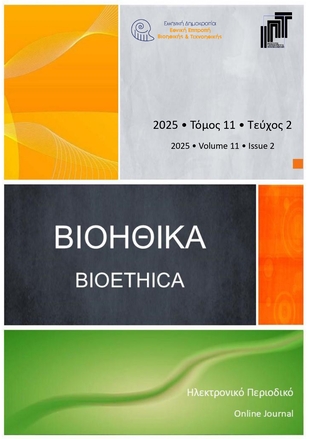The cybercriminal risks and threats of body-hacking crimes under the legal framework of Budapest Convention
Аннотация
In this Article, the Budapest Convention (The Convention on Cybercrime, Council of Europe, ETS No. 185) is put under legal analysis in the scope of risks and threats of cybercrimes against implantable, prosthetic and medical devices, referred to as “Body-Hacking Crimes” according to the terminology of this research. To analyze the Budapest Convention systematically, the risks and threats of “Body-Hacking Crimes” are brought to light under three sub-headings (Body-Hacking, Elements of Cybercrimes, Crimes & Reservations) as the main subjects of this Article. Under the first sub-heading, the term “Body-Hacking” is defined and explained as regards of its usage in the general and criminological literature to describe a new category of cybercrimes, as classified “Body-Hacking Crimes” in this paper. Under the second sub-heading, the elements of cybercrimes are analyzed in regard to the substantive law and human rights provisions of the Budapest Convention and legal loopholes regarding body-hacking crimes are uncovered in these provisions. Though there are multiple elements of cybercrimes required to be analyzed in specific to body-hacking crimes, only three elements (Intention, Non-Authorization, Computer Systems) are evaluated under the second sub-heading due to the inadequate regulations and definitions of these elements in the Budapest Convention. Under the final and third sub-heading, computer-related crimes and reservations regulated in the Budapest Convention are examined in correlation with the hackable nature of implantable, prosthetic and medical devices. Particularly, bodily integrity crimes are brought into the focus for legal analysis of body-hacking crimes inducing bodily damage in the final part of this article. In this study, the substantive-law-oriented and definitional problems of the Budapest Convention are predominantly investigated, which results in pointing out mostly Articles 1-13 of Budapest Convention. Furthermore, the domestic laws and court verdicts, esp. UK, US, France and Dutch cybercrime laws and supreme court decisions, are referred in this study to provide a legal perspective regarding the development of body-hacking crimes in the national legislations.
Article Details
- Как цитировать
-
Demirezici, A. S. (2025). The cybercriminal risks and threats of body-hacking crimes under the legal framework of Budapest Convention. Bioethica, 11(2), 8–26. https://doi.org/10.12681/bioeth.42841
- Выпуск
- Том 11 № 2 (2025): Bioethica
- Раздел
- Original Articles

Это произведение доступно по лицензии Creative Commons «Attribution» («Атрибуция») 4.0 Всемирная.
Authors who publish with this journal agree to the following terms:
- Authors retain copyright and grant the journal right of first publication with the work simultaneously licensed under a Creative Commons Attribution CC BY 4.0 License, which allows for immediate free access to the work and permits any user to read, download, copy, distribute, print, search, or link to the full texts of articles, crawl them for indexing, pass them as data to software, or use them for any other lawful purpose. Appropriate credit must be given by citing the author(s) and the original publication in this journal.
- Authors are able to enter into separate, additional contractual arrangements for the non-exclusive distribution of the journal's published version of the work (e.g. post it to an institutional repository or publish it in a book), with an acknowledgement of its initial publication in this journal.
We encourage authors to deposit their articles, as well as data underlying the publications, in institutional and/or other appropriate subject repositories.
Bioethica permits and encourages authors to archive the final publication pdf in institutional (e.g. the repository of the National Hellenic Research Foundation) or other appropriate subject repositories (e.g. SSOAR repository for social sciences), in compliance with institutional and/or funder open access policies, after publication in the BIOETHICA. Authors must provide bibliographic details that credit publication in the journal, as well as related funding details (when applicable).
Lists of institutional and other subject-based academic open access repositories can be found listed by country at the registry http://opendoar.org/countrylist.php
If your institution does not possess a repository you may deposit a copy of your paper at no cost with www.zenodo.org , the repository supported for open access research in the EU by the European Commission, through the project OpenAIRE (www.openaire.eu )



